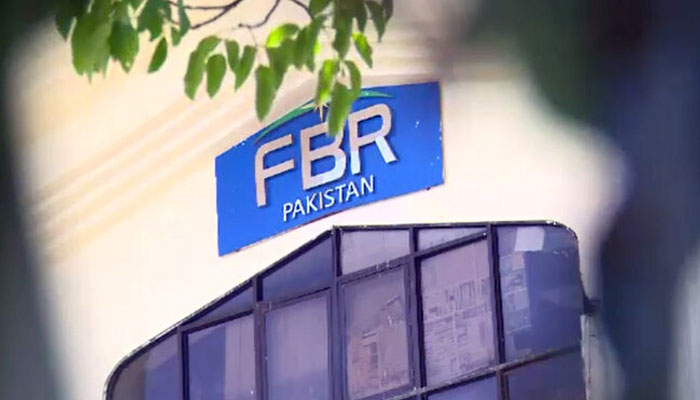FBR’s anti-benami, benami bodies unable to apprehend tax evaders

[ad_1]

- Commercial banks are biggest hurdle in connecting both databases.
- BAA received total of 81 references from Benami Zones.
- 59 cases of Benami assets involve an amount of Rs 13.71 billion.
ISLAMABAD: The Anti-Benami Initiative (ABI) and the Benami Adjudicating Authority (BAA) of the Federal Board of Revenue (FBR) are said to stand paralysed with no ability to apprehend tax evaders in the country, most of whom belong to the top 1% of those who possess 22% capital in Pakistan, The News reported.
The two bodies, the report stated on Friday, have failed to include these individuals and companies in the tax net.
It added that all those possessing multibillions of rupees, in otherwise unexplained assets, have named their assets and wealth against others, but have successfully remained safe, despite the enactment of the Benami Law in 2017, establishment of the Anti-Benami Initiative (ABI) and activation of the Benami Adjudicating Authority since 2019.
In some instances, the law has been used as a tool for political victimisation. After its inception from July 2019 to December 2020, the Benami Adjudicating Authority performed well but later on, proved a non-starter for making any difference.
The veracity of the misuse of benami could be gauged from the fact that with a Gini-Coefficient of 0.3, the top 1% of the population holds almost 22% of total wealth, the bottom 50% only 4%, and around 40% of the population live below the poverty line.
There is no doubt about who has the propensity to pay and who is actually not paying. Are these 1% paying their share of personal income tax as per their income? How do they hide their transactions?
By undervaluation and parking assets and transacting through benami accounts, the comparison of account holders vis-a-vis the return filers shows a huge gap, and the volume of these transactions indicates the huge potential of the benami law. Commercial banks are the biggest hurdle in connecting the two databases.
Apart from this, benamidars are abundantly used for properties, vehicles, shares and even business transactions to break the recording of the supply chain, facilitating both the initiating point, i.e. manufacturer or importer in concealing the value and retailer in concealing the real income, assets and volume of accumulated wealth and assets.
When the Benami law was passed by the parliament, it took almost two years to frame rules to make this law operational. On July 1, 2019, the Benami Adjudicating Authority was established with the creation of three benches in Islamabad, Lahore and Karachi after conducting initial spadework for the establishment of any authority and sanctioning new posts and allocation of budgetary resources. However, in the last couple of years, it could not be done so the posts could not be materialized.
Then the Directorate General Anti-Benami Initiative (DG-ABI) was launched to assist the FBR in the development and launch of an administrative and supervisory structure to look after three Benami Zones in Islamabad, Lahore and Karachi and the development & circulation of Operational Manuals, clarifying various provisions of the Benami Transactions (Prohibition) Act 2017 for guidance and uniformity of action in different Zones.
The Benami Adjudicating Authority received a total of 81 references from Benami Zones and finalised 59 cases u/s 24 of the Benami Act 2017. Out of 59 cases, in 25 cases, benami assets have been confiscated u/s 25 of the Act. These 59 cases involve an amount of Rs 13.71 billion, the cost of acquisition. The present market value (for confiscation and auction purposes) is much higher. The said 81 cases include benami properties of all kinds like immovable properties: plots, lands, commercial buildings, house properties, etc.
Moveable assets: vehicles (including luxury vehicles). Liquid assets/cash equivalent: Benami shares, bank A/Cs (cash at the bank), Benami businesses, and benami stocks (goods and commodities. There are 22 pending cases wherein most of the cases are at the final stage of disposal and established close liaison with the NAB and the State Bank of Pakistan in cases involving multi-party interest & cognizance.
This scribe sent out a question to the FBR to get a version but got no reply till the filing of this report on Friday night.
[ad_2]